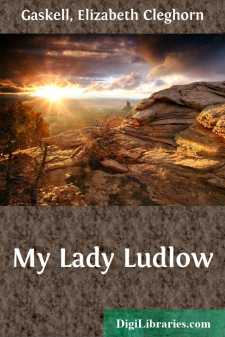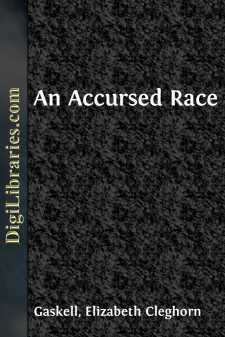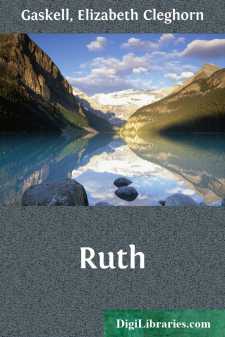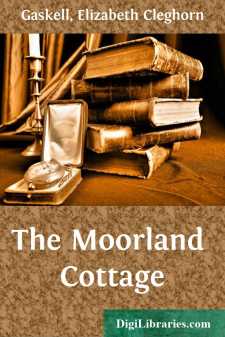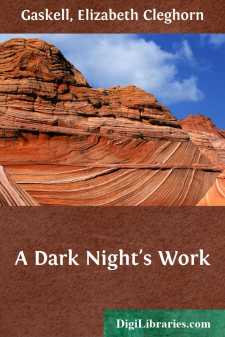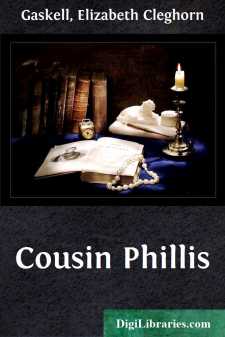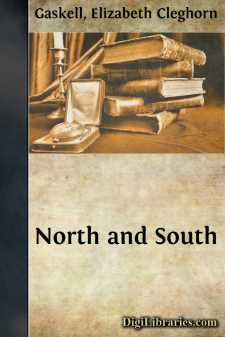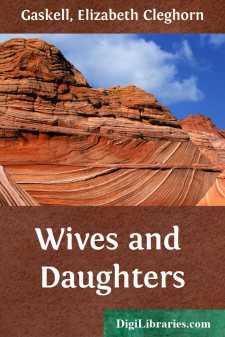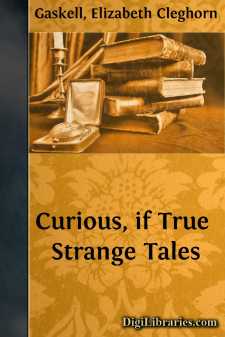Categories
- Antiques & Collectibles 13
- Architecture 36
- Art 48
- Bibles 22
- Biography & Autobiography 813
- Body, Mind & Spirit 142
- Business & Economics 28
- Children's Books 17
- Children's Fiction 14
- Computers 4
- Cooking 94
- Crafts & Hobbies 4
- Drama 346
- Education 46
- Family & Relationships 57
- Fiction 11829
- Games 19
- Gardening 17
- Health & Fitness 34
- History 1377
- House & Home 1
- Humor 147
- Juvenile Fiction 1873
- Juvenile Nonfiction 202
- Language Arts & Disciplines 88
- Law 16
- Literary Collections 686
- Literary Criticism 179
- Mathematics 13
- Medical 41
- Music 40
- Nature 179
- Non-Classifiable 1768
- Performing Arts 7
- Periodicals 1453
- Philosophy 64
- Photography 2
- Poetry 896
- Political Science 203
- Psychology 42
- Reference 154
- Religion 513
- Science 126
- Self-Help 84
- Social Science 81
- Sports & Recreation 34
- Study Aids 3
- Technology & Engineering 59
- Transportation 23
- Travel 463
- True Crime 29
Elizabeth Cleghorn Gaskell
Elizabeth Cleghorn Gaskell (1810-1865) was a prominent British novelist and short story writer, renowned for her detailed portrayals of Victorian society and its struggles. Her works, including "North and South" and "Cranford," often addressed social issues such as class disparity and women's rights. Gaskell's biography of her friend Charlotte Brontë is also highly regarded, offering an intimate glimpse into the life of the famous author.
Author's Books:
Sort by:
MONKSHAVEN On the north-eastern shores of England there is a town called Monkshaven, containing at the present day about fifteen thousand inhabitants. There were, however, but half the number at the end of the last century, and it was at that period that the events narrated in the following pages occurred. Monkshaven was a name not unknown in the history of England, and traditions of its having been...
more...
CHAPTER I. I am an old woman now, and things are very different to what they were in my youth. Then we, who travelled, travelled in coaches, carrying six inside, and making a two days’ journey out of what people now go over in a couple of hours with a whizz and a flash, and a screaming whistle, enough to deafen one. Then letters came in but three times a week: indeed, in some places in Scotland...
more...
We have our prejudices in England. Or, if that assertion offends any of my readers, I will modify it: we have had our prejudices in England. We have tortured Jews; we have burnt Catholics and Protestants, to say nothing of a few witches and wizards. We have satirized Puritans, and we have dressed-up Guys. But, after all, I do not think we have been so bad as our Continental friends. To be...
more...
CHAPTER I There is an assize-town in one of the eastern counties which was much distinguished by the Tudor sovereigns, and, in consequence of their favour and protection, attained a degree of importance that surprises the modern traveller. A hundred years ago its appearance was that of picturesque grandeur. The old houses, which were the temporary residences of such of the county-families as contented...
more...
CHAPTER I. If you take the turn to the left, after you pass the lyke-gate at Combehurst Church, you will come to the wooden bridge over the brook; keep along the field-path which mounts higher and higher, and, in half a mile or so, you will be in a breezy upland field, almost large enough to be called a down, where sheep pasture on the short, fine, elastic turf. You look down on Combehurst and its...
more...
CHAPTER I. In the county town of a certain shire there lived (about forty years ago) one Mr. Wilkins, a conveyancing attorney of considerable standing. The certain shire was but a small county, and the principal town in it contained only about four thousand inhabitants; so in saying that Mr. Wilkins was the principal lawyer in Hamley, I say very little, unless I add that he transacted all the legal...
more...
PART I It is a great thing for a lad when he is first turned into the independence of lodgings. I do not think I ever was so satisfied and proud in my life as when, at seventeen, I sate down in a little three-cornered room above a pastry-cook's shop in the county town of Eltham. My father had left me that afternoon, after delivering himself of a few plain precepts, strongly expressed, for my...
more...
CHAPTER I 'HASTE TO THE WEDDING' 'Wooed and married and a'.' 'Edith!' said Margaret, gently, 'Edith!' But, as Margaret half suspected, Edith had fallen asleep. She lay curled up on the sofa in the back drawing-room in Harley Street, looking very lovely in her white muslin and blue ribbons. If Titania had ever been dressed in white muslin and blue ribbons,...
more...
THE DAWN OF A GALA DAY To begin with the old rigmarole of childhood. In a country there was a shire, and in that shire there was a town, and in that town there was a house, and in that house there was a room, and in that room there was a bed, and in that bed there lay a little girl; wide awake and longing to get up, but not daring to do so for fear of the unseen power in the next room—a certain...
more...
THE OLD NURSE'S STORY You know, my dears, that your mother was an orphan, and an only child; and I daresay you have heard that your grandfather was a clergyman up in Westmoreland, where I come from. I was just a girl in the village school, when, one day, your grandmother came in to ask the mistress if there was any scholar there who would do for a nurse-maid; and mighty proud I was, I can tell ye,...
more...



